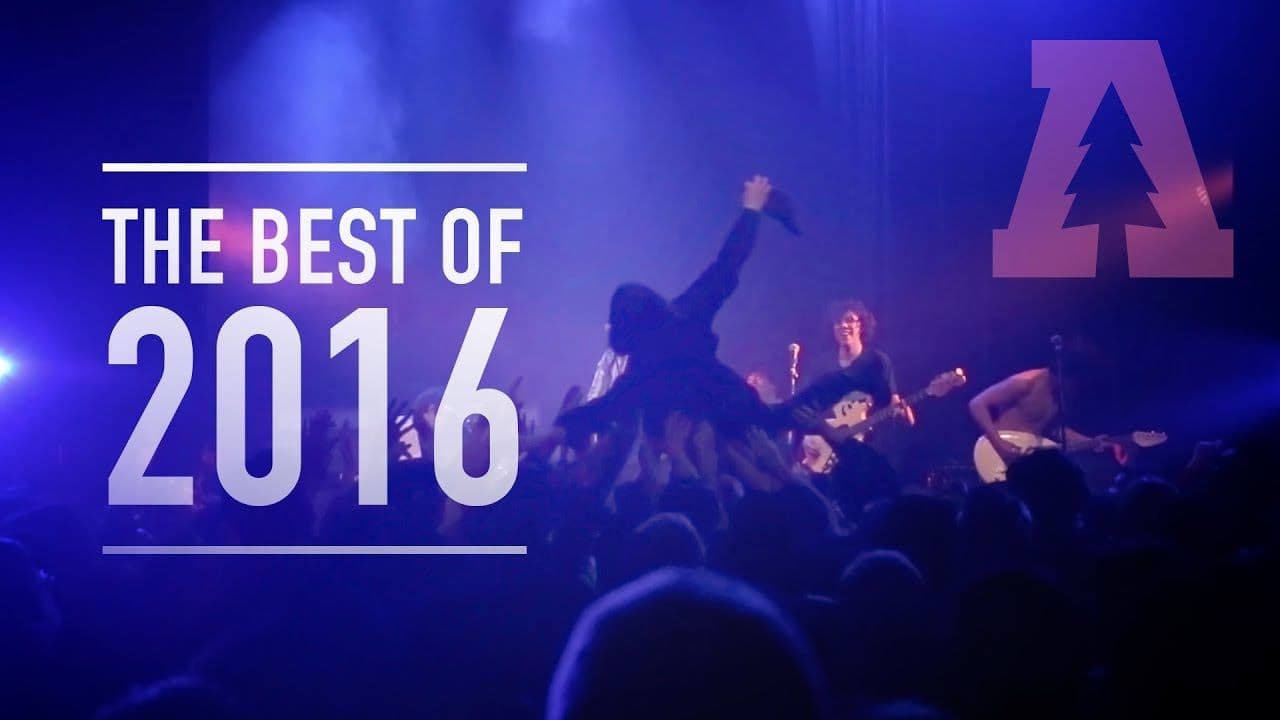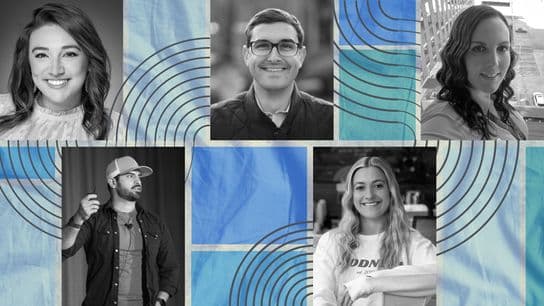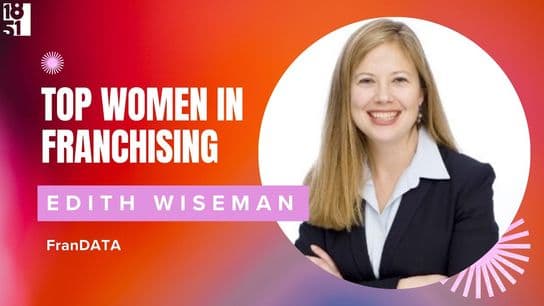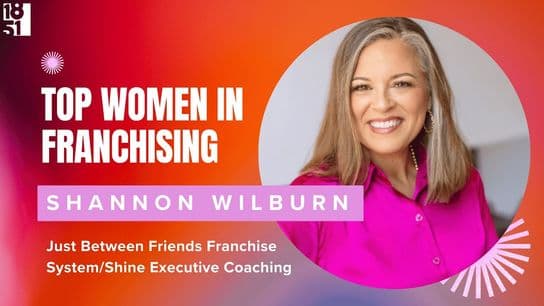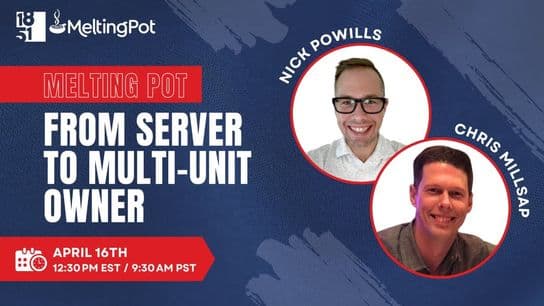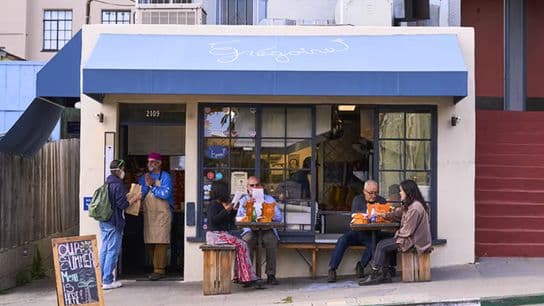Young Entrepreneurs: Michael Johnston of Audiotree
Audiotree, a Chicago-based music start-up, has a plan to disrupt the music industry and serve more emerging artists by giving them exactly what they want.
The Wicker Park loft office of Audiotree doesn’t initially give visitors the clearest idea of what goes on there. It’s a young business, run by energetic and talented quasi-hipster Millennials; the old hardwood flooring is barely refinished and creaks with each step; original hand-painted, wall-length artwork grabs your attention the second you walk through the office's glass doors; and a record player croons out the staff’s latest indie darlings (they’re probably bands you never heard of before) as they busily work away on their MacBooks.
But what sort of business is it exactly? Is it a record label? A music discovery platform? Or is it a production company? If you asked founder Michael Johnston, he’d tell you it’s a unique combination of all three—and with that secret recipe, he believes the five-year-old company is poised to completely disrupt the way independent musicians produce, disseminate and advertise their music.
For as long as Johnston can remember, music has always been an integral part in his life. He recalls one day as a second grader in particular—as a young kid, he struggled with the daily reading and writing exercises. Noticing he was falling behind, the teacher placed Johnston in a quiet corner and put headphones on his head. As sounds from the ’50s filled his ears, Johnston found that focusing became much easier—music had completely helped to transform the way he learned.
Then came middle school and high school—he learned how to play classic instruments like the piano and trumpet; he mastered the art of guitar playing; and he studied the nuances of playing drums so he could join a teenage punk rock band. It made sense, then, that come college, Johnston was ready to turn his passion for music into a career.
Armed with a degree in audio engineering from Full Sail University in Florida, Johnston moved to Chicago in 2007. After spending some time working for local recording studios, he quickly realized an unmet need—young and emerging brands were having trouble ponying up the funds needed to produce professional recordings.
“That’s when I had my a-ha moment. I was so tired of seeing these young bands having to launch a year-long Kickstarter campaign or dip into their savings just to pay for a studio recording. Why couldn’t I find these talented musicians, give them access to a state-of-the-art recording studio, film them and record them for free? The end result would be this incredible online archive of bands that anyone could access and listen to,” Johnston said. “There’s no loop-holes, no hefty fees and no record label contracts involved.”
That was the initial vision for Audiotree. But over the years, as Johnston built up a team, he decided it was time to take a look at a long-term plan. How could he make Audiotree self-sustaining while, at the same time, making a lasting and meaningful impact on the music industry?
“When I look back at my thought process at the time, I was so fed up with major labels picking up auto-tuned bands and unoriginal pop music. I saw so many talented singer-songwriters that nobody knows about—that’s because they couldn’t afford a publicist or studio time,” Johnston said. “Our goal was to give these musicians a platform to be heard, while giving music fans an alternative outlet to discover the next-best-thing in bands. Whether hip-hop, soul, rock or jazz, we wanted raw talent. We didn’t want bands that are overproduced and pushed down our throats—like the Justin Biebers of the world. We wanted to be a label for small, emerging artists. We wanted to expose artists that weren’t getting exposure they deserve.”
With that, the current model of Audiotree was born. Bands come into the Audiotree studio, and the company’s team records, shoots, edits and uploads the session on platforms like YouTube, iTunes and Spotify—reaching hundreds of thousands of fans in a high-quality audio and video experience. And the best part? Audiotree then splits the profit 50/50 from sales.
Today, Audiotree has come a long way since its inception in 2011. The company has expanded its catalog to include over 700 live studio sessions. The office has grown from two to over a dozen staff members. They’ve hosted multiple SXSW Audiotree-branded showcases in Austin, Texas. They’ve held their own music festival in Kalamazoo, Michigan for four years in a row. Last year, storied Chicago music venue Schubas and its sister club, Lincoln Hall, were acquired by Audioleaf, an amalgam of Audiotree and Michigan-based Greenleaf Companies. And, perhaps most importantly, Audiotree has accumulated a handful of notable success stories—both with music listeners and the bands themselves.
“We constantly hear from people from all walks of life—people who tell us how many bands they’ve discovered through Audiotree. Agents have signed artists that they’ve found on our website,” Johnston said. “We believe we’re doing a tremendous thing for such a fragmented industry—and we’re starting to see that payoff.”
In particular, Johnston points to one of Audiotree’s most prominent recordings. When Shakey Graves came to the company’s studio in 2013, he was fairly unknown beyond his following in Austin, Texas. Armed with a guitar and a suitcase kick drum, he spent three hours playing for Audiotree’s team. Today, that session has garnered Shakey Graves nearly $40,000 in royalties after one of those very studio recordings was picked up in a movie. The song “Roll the Bones” also has more than five million views on YouTube and more than one-and-a-half million listens on Spotify.
“If you talk to Shakey Graves’ manager, he’ll happily tell you that that Audiotree session helped launch his career,” Johnston added. “That taught us an important lesson—if you have the talent and if you can write a truly incredible song, people will want to listen. We’re here to give them the resources needed to make that discovery happen.”
As the music industry continues to evolve, Johnston is confident that this is just the beginning for Audiotree. If the overnight success of Chance the Rapper through streaming alone is any indication, the role of the major record label in an artist’s career is slowly diminishing. And platforms like Spotify, Tiny Desk, Little Elephant, Daytrotter and Audiotree are quickly becoming the future of music discovery for up-and-coming musicians everywhere.
“There’s just so many ways to discover music these days—and that’s awesome. The music industry, the giants, they’ll fall apart because they aren’t adapting and changing. We have the ability to be nimble and change alongside this dynamic industry,” Johnston said. “The music landscape could be completely different five years from now, but Audiotree will continue to do what we do best—and that's filming artists, creating amazing content and being a friend, a partner and an ally for musicians who want to be heard.”
